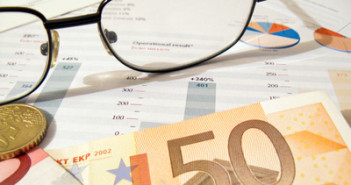EUR/USD remains under pressure, as the pair lost ground on Wednesday following the release of strong consumer spending data out of the US. Retail Sales and Core Retail Sales both posted gains and beat expectations, as the outlook for the US economy continues to brighten. The euro has fallen below the 1.30 level, and was trading in the mid-1.29 range in Thursday’s European session. EU leaders meet for an economic summit today, and the ECB releases its monthly bulletin. In the US, there are two major releases today – PPI and Unemployment Claims.
Here is a quick update on the technical situation, indicators, and market sentiment that moves euro/dollar.
EUR/USD Technical
- Asian session: Euro/dollar touched a low of 1.2943, and consolidated at 1.2954. The pair is unchanged in the European session.
- Current range: 1.2880 to 1.2960.
Further levels in both directions: 
 Â
Â







- Below: 1.2880, 1.2805, 1.2746, 1.27, 1.2660 and 1.2587.
- Above: 1.2960, 1.3000, 1.3030, 1.3100, 1.3130, 1.3170, 1.3255, 1.3290, 1.3350, 1.34, 1.3486 and 1.3588.
-  1.2880 is providing strong support.Â
- The pair is testing resistance at 1.2960. 1.3000 is stronger.
Euro/dollar under pressure after solid US retail sales numbers – click on the graph to enlarge.
EUR/USD Fundamentals
- 9:00 ECB Monthly Bulletin
- Day 1: EU Economic Summit
- 10:00 Eurozone Employment Change. Exp. -0.1%
- 12:30 US PPI. Exp. 0.7%
- 12:30 US Unemployment Claims. Exp. 348K
- 12:30 US Core PPI. Exp. 0.2%
- 12:30 US Current Account. Exp. -111B
- 13:00 FOMC Member Sarah Bloom Raskin Speaks
- 14:30 US Natural Gas Storage
- 17:00 US 30-year Bond Auction
- 21:30 US Bank Stress Test Results
For more events and lines, see the EUR/USDÂ
EUR/USD Sentiment
- Is ECB considering a rate cut?: Although the ECB did not lower interest rates last week, the vote was not unanimous, and the ECB has not ruled out trimming rates later this year. The markets jumped on comments by Jens Weidmann, a senior ECB official, who said that inflationary pressures were receding in the Eurozone. Was this a hint that the ECB might lower interest rates soon? The ECB would prefer that the bloc show some signs of recovery without the ECB having to lower interest rates, which are already at record-low levels. However, economic indicators from the Eurozone have not looked sharp, and this has fueled speculation of a possible interest cuts, which is weighing on the euro.
- Euro slumps as US indicators continue to point upwards: We are used to seeing mixed data out of the US, but recent numbers have looked very good. The markets have reacted with a  thumbs up, and this has helped the dollar post gains against the euro. Employment data has been stellar, and on Wednesday, retail sales showed respectable gains. The strong numbers have spread to other sectors as well, as Import Prices, Business Inventories and Crude Oil Inventories all beat their respective estimates. Has the US recovery entered a new phase? We’ll see if the positive trend continues, as the the US releases Unemployment Claims and PPI later on Thursday.
- Fitch downgrades Italy, Spain: ECB head Mario Draghi has all but guaranteed that the Eurozone economy will turn around later this year, but the Fitch ratings agency wasn’t buying. Last week, Fitch downgraded the debts of Italy and Spain, as well as Belgium, Cyprus, and Slovenia. All these countries are members of the Eurozone, and Fitch warned that European leaders were not acting decisively enough to combat the debt crisis affecting the continent. Italy was lowered to a rating of -A, and Spain was lowered to A. Fitch also placed a negative outlook on all five members, meaning that there is greater than 50 percent chance of another downgrade in the next two years. The downgrade is likely to exacerbate Italy’s severe political and economic problems. The country is embroiled in a political crisis, and is struggling to contain a massive debt of 1.9 trillion euros.
- Italian Impasse Continues: The political stalemate which has paralyzed Italy for several weeks continues, and the Italian Parliament will meet on Friday to try and sort out the mess. Most Italians oppose another election, but so far, the political leaders have not made any headway as far as forming a new government. The financial markets remain skeptical, and Italy’s three-year borrowing costs rose to their highest since December at an auction earlier this week. This comes on the heels of a credit downgrade by Fitch. If Italy cannot sort out the political puzzle soon, the economy will take a hit, and we can expect the shaky euro to head south as well.



